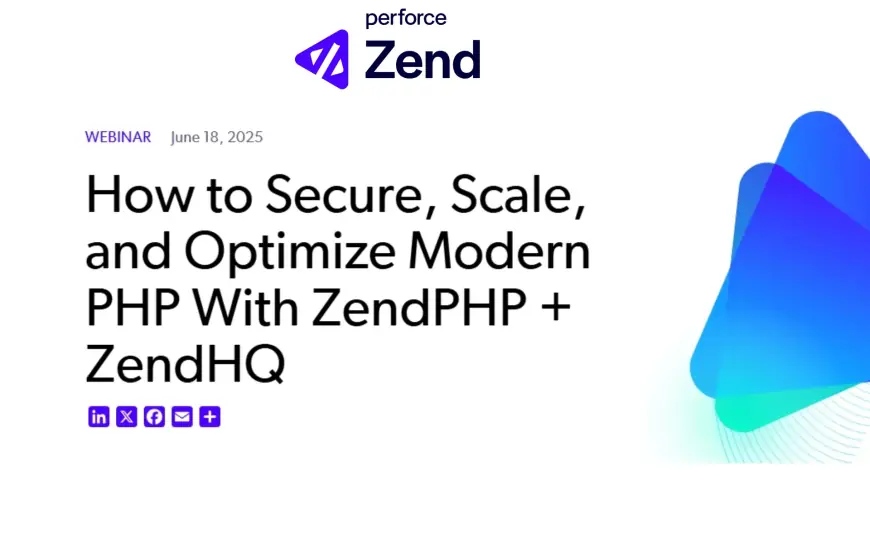How to Secure, Scale, and Optimize Your PHP Projects
Modern PHP applications need strong security, scalable architecture, and real-time insights to achieve business goals. Learn to balance maintenance, security...

PHP remains one of the most widely used languages for web development, powering everything from small-scale applications to enterprise-level systems. However, as projects grow in complexity, developers must tackle three key challenges: security, scalability, and optimization. Without addressing these factors, applications can become vulnerable, sluggish, and costly to maintain.
Securing PHP Applications
Security should be a top priority in every PHP project. Common vulnerabilities such as SQL injection, cross-site scripting (XSS), and insecure authentication mechanisms can expose applications to serious risks. To mitigate these threats:
- Keep PHP Updated: Use a supported version that receives security patches.
- Implement Proper Input Validation: Sanitize user inputs to prevent exploits.
- Use Secure Authentication & Authorization: Employ strong password hashing and role-based access control (RBAC).
- Leverage HTTPS & Secure Configurations: Ensure encrypted communication and set restrictive permissions on sensitive files.
Scaling PHP Applications
As applications grow, they must handle increased traffic and data efficiently. A scalable architecture ensures seamless expansion without performance bottlenecks. Key strategies include:
- Load Balancing: Distribute requests across multiple servers to optimize response time.
- Caching Mechanisms: Use Redis, Memcached, or built-in PHP caching to speed up frequent queries.
- Microservices & Cloud Integration: Break monolithic applications into modular components for better resource management.
- Database Optimization: Indexing, partitioning, and query caching can significantly boost performance.
Optimizing PHP Performance
Performance optimization is essential to deliver a fast, responsive experience for users. Here are some effective ways to enhance PHP efficiency:
- Profile & Debug Code: Use tools like Xdebug and Blackfire to analyze execution times and bottlenecks.
- Reduce Database Calls: Optimize queries and leverage object-relational mapping (ORM) wisely.
- Optimize Code Execution: Minimize loops, unnecessary operations, and redundant calculations.
- Enable Opcode Caching: Tools like Zend OpCache store compiled PHP code to speed up execution.
Join the Webinar: Secure, Scale, and Optimize PHP With ZendPHP + ZendHQ
Modern PHP applications need strong security, scalable architecture, and real-time insights to achieve business goals. However, frequently upgrading to the latest PHP version isn’t always feasible, and maintaining optimization while ensuring compliance can pose major challenges.
That’s where ZendPHP and ZendHQ come in.
ZendPHP provides a high-performance environment for mission-critical applications, while ZendHQ offers advanced monitoring and management tools that integrate seamlessly with existing APMs. Together, they help optimize PHP infrastructure without compromising security or wasting valuable resources.
What to Expect in the Webinar
Join Zend Senior Solutions Engineer Yeshua Hall for an in-depth session covering: Services provided by ZendPHP, including LTS support and security patches.
- ZendHQ functionalities such as real-time insights, job automation, and role-based access control.
- How to install and configure ZendPHP + ZendHQ for maximum efficiency.
- Actionable roadmaps for teams aiming to enhance PHP infrastructure.
Secure your spot today and take your PHP development to the next level.
Reward this post with your reaction or TipDrop:
 Like
0
Like
0
 Dislike
0
Dislike
0
 Love
0
Love
0
 Funny
0
Funny
0
 Angry
0
Angry
0
 Sad
0
Sad
0
 TipDrop
0
TipDrop
0






















